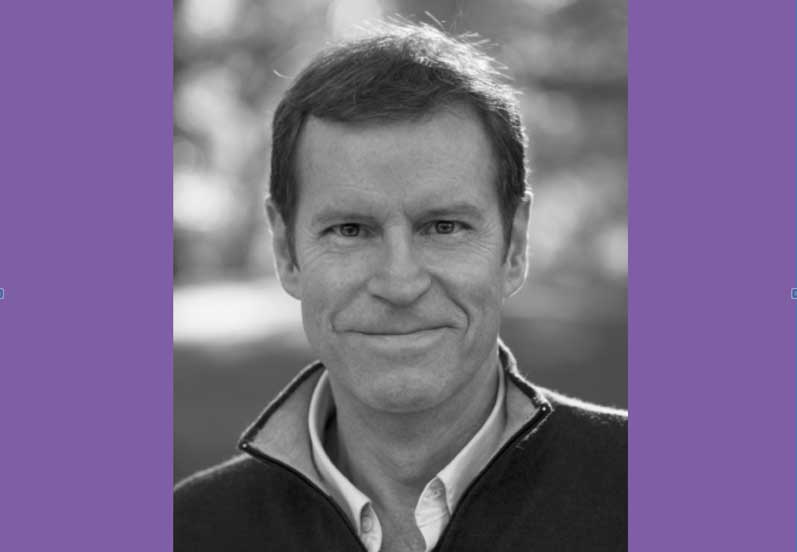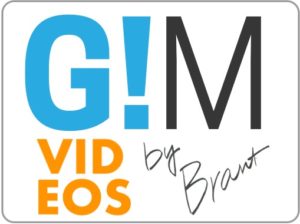Not one, not two, but three Near Death Experiences (NDE’s) taught author Robert Kopecky and thing or two (or three) about the afterlife, and more importantly, how to live in the present with abundant joy, humility, and presence. Learn about life after death, and how to experience heaven without really dying. Start listening using the player below, or go here for a detailed overview of the show!
Affiliate Disclosure
My guests and I often refer to various resources (e.g. books, products, videos, course etc.), which are offered for sale on this page. While I do make a small commission from the sale of these products, you do not pay a penny more for them! It’s called Affiliate Marketing, and every purchase you make by clicking the links on this page help pay for the show. I hope you find the resources useful, and thanks for your support!![]()
New from Brant Huddleston
Dance Podcasts You Might Like
Share the Love!
Your quick review on iTunes would help me a lot. It’s as easy as ABC! Just…
A) Look for the gold “Review Brant’s Show on iTunes” button below. Click there.
B) Then (in iTunes) click on “View in iTunes.” It’s the blue button under the iTunes logo. That will open iTunes. Finally;
C) Look for the “Ratings and Reviews” tab. Click there and work your magic!
Presto and grazie!

Show Overview
Robert Kopecky is the author of the book “How to Survive Life (and Death): A Guide for Happiness in This World and Beyond,” in which he writes about his three Near Death Experiences (NDE), and more importantly, what they taught him about how to live. Robert is an Emmy nominated art director. He designed the credits for Showtime’s Weeds, and directed art for the PBS children’s show Word World. He contributes to Evolver.net, NewBuddhist.com, TheMindfulWord, and Gaia. You can find Robert on his blog Art, Faith, and the Koko Lions.
Robert’s newest book, “How to Get to Heaven (Without Really Dying): Wisdom from a Near Death Survivor” is available on Amazon.
I first met Robert Kopecky online, when his tweet caught my eye. It was for a Gaia post entitled “Are Women (Spiritually) Superior To Men? A Call To Action!” Having just finished Robert Bly’s male empowerment book “Iron John: A Book About Men,” I had a hot flood of testosterone flowing through my veins and thus, more than a few reactions to Robert’s post. I said so in my own response entitled “Are Women (Spiritually) Superior to Men? A Dissenting View!” A friendship between us ensued resulting in several phone conversations, and then this interview on January 27, 2016.
I’m really looking forward to continuing my friendship and conversation with Robert, either in New York City where he lives with his wife, or for sure in Orlando Florida this fall where we are both speakers at The Afterlife Conference.
What you will learn in this episode:
- About the typical Near Death Experiences: out of body; life review, and reluctant return
- How a “dark night of the soul” leads to ego death, which leads to a moment of absolute humility: the fallow ground for new growth
- Why our souls need death
- Ways to induce “micro-deaths” through meditation, or though external agents like Ayahuasca, the so-called “vine of death”
- The relationship between psychedelics and a spiritual experience, and about related research by Tim Ferris; Dr. Stephen Ross (NYU Psilocybin Project at Bellevue Hospitals); Stanislav Graf (MD); Walter Panic (MD); and Roland Griffith at John Hopkins
- If growth can only be brought about through pain and suffering, and the nature of karma
- How we can control or influence our karma by living by conscious principles
- How to reconcile the competing messages men get about their egos, and the Donald Trump delusion
- Dating, the dangers of being a poser, and how he met his wife
- How we have an opportunity to redefine success (We don’t have to be anything but what we are)
- His three tips for happiness
- How to let go of bad energy once and for all: The warmth of detachment
- The one book: The Eknath Easwaran translation of the Bhagavad Gita
- His thoughts on The Art of War by Sun Tzu
Questions I asked Robert Kopecky:
Your first NDD seemed so profound, and for most folks, that would have been enough to change their life view, but it did not seem to fully register with you. Is that a true statement? If true, why do you think that was?
What are your thoughts on the intention of God (or the universe) to have permitted three experiences for you? Do you think there was a plan from the beginning for you to get tapped three times by the cosmic hammer in order for you to bear the fruit you have?
Do you find your comfort level with death and dying fairly consistent through your present life, or does it have ebbs and flows?
If and when it does ever ebb, what practices or techniques do you use to revive your equanimity?
Your own NDE’s, like most, were an unexpected or involuntary experience. What are your thoughts on inducing a voluntary NDE, such as some do by using Ayahuasca, the so-called “vine of death,” in order to gain the same benefits?
Put another way, how much of the benefit you gained from your NDEs can be gained secondhand by reading your book, or meditation and other practices, as opposed to having the NDE experience firsthand?
Let’s talk a little bit about pain. How much pain, on a scale of 1 to 10 with 10 being the greatest, did you experience in each of your three NDE’s?
I’m going to read a quote from the famous stoic philosopher Seneca the younger, and I’d like you to comment on it in the context of pain.
“It is precisely in times of immunity from care that the soul should toughen itself beforehand for occasions of greater stress, and it is while fortune is kind that it should fortify itself against her violence.” – Seneca the Younger
What have your friends and family had to say about your experiences? Especially, what has your significant other in each case had to say about it?
What advice would you give to people who have had and NDE but are afraid to “come out” for fear of how it might affect their careers?
How would you describe the feedback that you get in general, from strangers who respond to your blog and so forth?
How useful do you think it is today for us to practice a form of disembodiment, that is, disassociating ourselves from the bodily shell we inhabit, in order to prepare ourselves for the next phase of our existence?
If it is useful, what practices do you recommend for accomplishing that disassociation?
Personally, I find that judgments and grudges are like a bad penny. I earnestly throw them away, but they keep turning back up again. What practices do you recommend for more effectively leaving that baggage behind once and for all?
I really like your advice to be as totally tolerant and forgiving as possible, even with the most awkward or abrasive attitudes. You must have a lot of opportunities to practice that in New York City, yes?
Most of us who are trying to negotiate something, whether it be a divorce agreement or the purchase of a car, believe in keeping some cards close to the vest, a form of “lying by omission.” This is a supposedly winning tactic outlined in Sun Tzu’s famous book “The Art of War.” How would you reconcile that tactic with the ideal formula you proposed, which is love plus honesty equals all solutions?
What are some of the rituals or practices you use to keep love as central focus of your life?
As men, we get some very mixed messages about our egos. Both women and businesses seem attracted to the quintessential overconfident, assertive, decisive, even egotistical Type A male. But that persona seems at odds with a person who is continually reminding himself, as you have advised, that we are just like everyone else, and everyone else is just like us. How do you practically reconcile these competing messages when you were dating, or in your current pbusiness life?
How do you manage owning things that you treasure…a book, a photograph, an instrument, a piece of fine furniture, whatever it might be, and still free yourself from the clutches of death that are defined by what we might lose?
What impact have your experiences had on your religious beliefs?
What are your thoughts on hell?
If you had a way of crafting the perfect environment by which the masses could transition from this life to the afterlife, what would it look like? Describe the architecture, the technology, the staff, the colors, anything that comes to mind that you think would work for most people.
How has the book affected your life since it was published in 2014?
Tell loss about some of the other work you do today with GaiaTV and other organizations?
###


